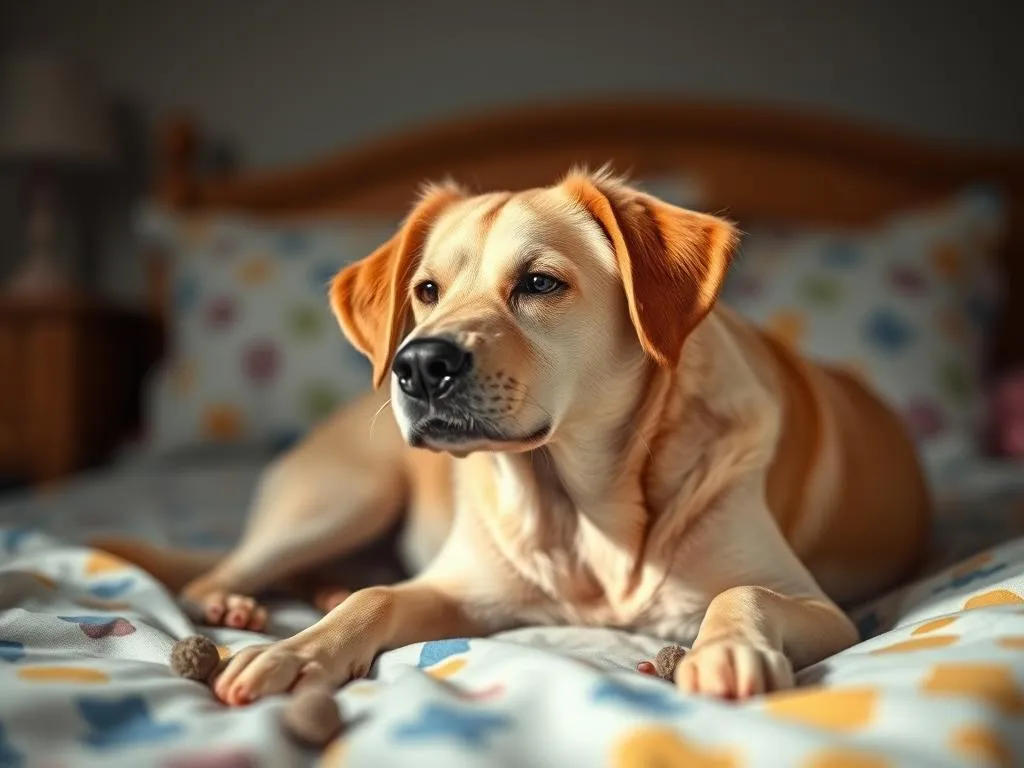
The behavior of dogs urinating on children’s beds can be a perplexing and distressing issue for many pet owners. Understanding why this occurs is crucial not only for addressing the behavior but also for maintaining a harmonious household. This article delves into the various reasons behind this behavior, the factors that contribute to it, and strategies to prevent it, ensuring a well-rounded approach to this common canine dilemma.
Understanding Dog Behavior
Canine Communication
Dogs are inherently communicative creatures, and they express themselves through a variety of actions, including urination. Scent marking is a natural behavior for dogs, allowing them to convey messages to other animals. When a dog urinates on a child’s bed, it is often not just an accident but a form of communication. The bed carries the scent of the child, making it a prime target for marking.
Reasons for Urination
There are numerous reasons why dogs might urinate inappropriately, especially on a child’s bed. Natural instincts play a significant role in this behavior. Dogs are territorial animals, and by marking a child’s bed, they may be asserting their presence and protecting their “pack.” Additionally, emotional responses such as anxiety, fear, or excitement can trigger urination. A dog may feel overwhelmed by changes in the household or experience anxiety from loud noises or new people, leading to accidents.
Factors Contributing to Bedwetting
Medical Issues
Before jumping to conclusions about behavioral issues, it’s essential to consider potential medical problems. Conditions like urinary tract infections (UTIs) or incontinence can lead to unexpected urination. If your dog is urinating frequently or appears to be in discomfort, a visit to the veterinarian is crucial to rule out any underlying health concerns. Always prioritize your dog’s health when assessing behavior.
Behavioral Triggers
Various behavioral triggers can contribute to a dog’s tendency to urinate on a child’s bed. Changes in the household environment, such as the arrival of a new baby or moving to a new home, can be significant stressors for dogs. Additionally, previous trauma or negative experiences can instill fear or anxiety, leading to inappropriate urination. Finally, a lack of proper training or reinforcement can exacerbate the issue, as dogs may not understand where it is acceptable to relieve themselves.
The Child-Dog Relationship
Child’s Influence on Dog Behavior
The relationship between a child and a dog can significantly impact the dog’s behavior. Children’s actions can unintentionally stress dogs, leading to anxiety and subsequent accidents. For instance, loud noises or sudden movements can be startling for a dog. It’s essential for parents to teach children how to interact gently and respectfully with pets, fostering a positive environment for both the dog and the child.
Protective Instincts
Dogs are often protective of their young humans. When a dog urinates on a child’s bed, it may be marking territory to protect its pack. This behavior stems from the concept of pack mentality, where the dog sees itself as a guardian of the family unit. Understanding this instinct can help pet owners manage their dog’s behavior more effectively.
Strategies for Prevention
Training Techniques
Implementing effective training techniques is vital in addressing the issue of dogs urinating on children’s beds. Basic obedience training lays the foundation for good behavior. Commands such as “sit,” “stay,” and “leave it” can help establish boundaries. Additionally, house training best practices, including frequent bathroom breaks and positive reinforcement when the dog goes outside, can reinforce desired behaviors. Using positive reinforcement methods encourages dogs to repeat good behaviors by rewarding them with treats or praise.
Creating a Safe Space
Establishing a safe space for your dog can significantly reduce anxiety and the likelihood of urination in inappropriate places. Creating boundaries in the home, especially around children’s rooms, can help manage where the dog is allowed to roam. Additionally, providing a comfortable, designated sleeping area for the dog can help it feel secure and less inclined to mark other areas.
Addressing Anxiety and Stress
Identifying and addressing stressors in a dog’s environment is crucial. Whether it’s loud noises, unfamiliar visitors, or changes in routine, recognizing what triggers anxiety can help mitigate the issue. Techniques to calm anxious dogs include playing soothing music, using anxiety wraps, or providing a quiet space where the dog can retreat. Understanding and addressing anxiety can significantly improve a dog’s overall behavior and well-being.
What to Do If It Happens
Immediate Response
If a dog does urinate on a child’s bed, it’s essential to respond appropriately. Cleaning up after an accident should be done promptly to prevent lingering odors that may encourage repeat behavior. Use enzymatic cleaners specifically designed for pet messes, as these products effectively eliminate odors and stains, discouraging the dog from returning to the same spot.
Long-term Solutions
For persistent issues, consulting a veterinarian is crucial to rule out any medical concerns. If the behavior continues despite training efforts, it may be time to re-evaluate training approaches and household dynamics. Consider whether there are any stressors or triggers that have not been addressed. Sometimes, working with a professional dog trainer or behaviorist can provide additional strategies tailored to your dog’s specific needs.
Conclusion
Understanding why dogs urinate on children’s beds involves considering a range of factors, from medical issues to behavioral triggers. By addressing these factors with compassion and patience, pet owners can foster a positive environment for both their dogs and children. Open communication and proper training can help mitigate this behavior, leading to a more harmonious household. If you have experienced similar issues or have concerns about your dog’s behavior, sharing your experiences can provide valuable insights for others navigating this common challenge.
FAQs
Common Questions About Dog Behavior
Why does my dog pee when excited?
Dogs may urinate when excited as a natural response to stimulation. This can happen during playtime or when greeting people, especially if the dog is anxious or not fully house-trained.
Is this behavior common in puppies?
Yes, puppies often experience excitement urination due to their developing bladder control and heightened emotional responses. Consistent training and patience can help minimize this behavior as they mature.
How can I tell if my dog has a medical issue?
Signs of potential medical issues include frequent urination, straining while urinating, blood in the urine, or any unusual behavior. If you notice these signs, consult your veterinarian promptly for a thorough evaluation.









